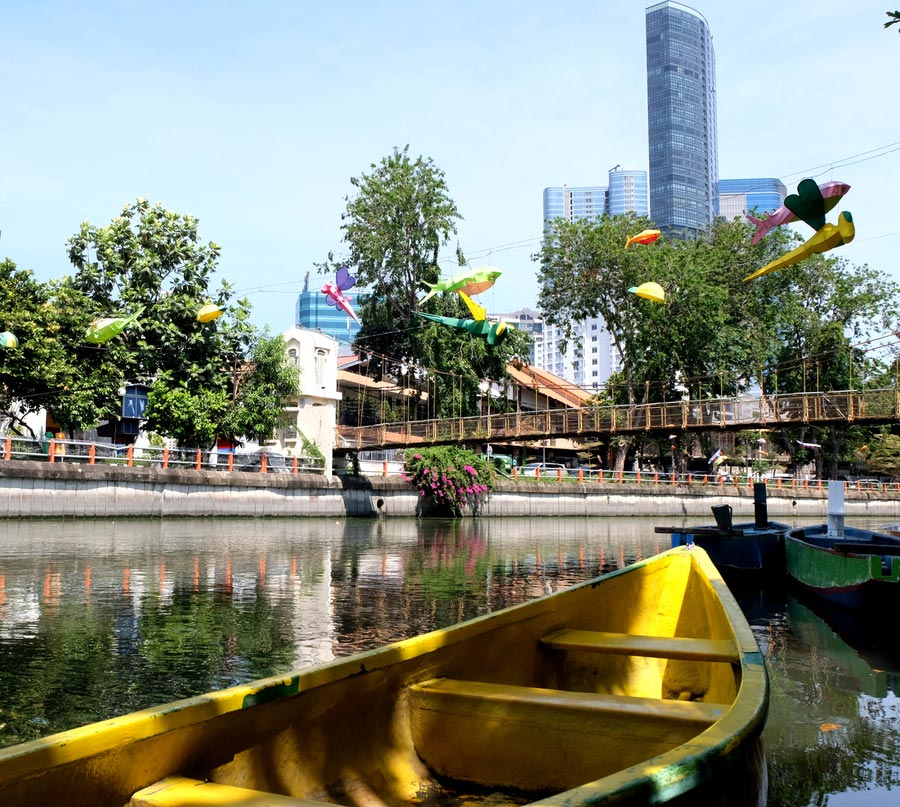Life After Risma Mayorship: Surabaya’s Performance on Environmental Issues
As one of the cities in East Java with a higher gender development index vis-a-vis its neighbours, 1 Surabaya made history by having the first female mayor elected in Indonesia through the direct regional election. Tri Rismaharini (popularly known as Risma) was the first female mayor of Surabaya. First elected in the 2010 local election (pilkada), she continued to serve in the post for two terms. In 2015, she was re-elected with a solid landslide victory of 86.22 percent. 2
As the first female mayor in the country, Risma has successfully proven that women are capable of becoming great leaders. She brought positive changes to the region, too. For example, Surabaya won various awards under her leadership; she also received many awards, demonstrating her excellent leadership. Among the awards that Surabaya received were the adipura kencana – which it won for eight years in a row from 2011 to 2018 – for the metropolitan city category, as well as the adipura paripurna in 2016, 3 designated for regions that implement sustainable environmental development.

Fig. 1: Tri Rismaharini hands over compensation to flood and landslide victims in Nagari (village) Sungai Durian, Patamuan District, Padang Pariaman Regency, West Sumatra. [Photo courtesy of Ministry of Social Affairs of Republic of Indonesia, 2024, Public Domain.]
In 2012, Surabaya was awarded the best city in Asia Pacific for its success in environmental governance and increasing public participation in environmental management. In 2017, Surabaya also received the Global Green City award at the Global Forum on Sustainable Settlements and Cities event from the Global Forum on Human Settlements (GFHS), in New York, United States. 4
In 2015, the World City Mayors Foundation regarded Risma to be the third-best mayor in the world for her efforts in transforming Surabaya into a greener and well-organized city. For her remarkable breakthroughs on environmental issues, she was also named one of Fortune magazine's 50 influential figures in the world along with other figures such as Facebook CEO Mark Zuckerberg and Indian Prime Minister Narendra Modi. 5
Some of Risma's programs and policies during her leadership included the development of protected areas of Surabaya's East Coast (Pamurbaya) as Green Open Space (GOS), covering an area of 2,871 hectares to protect the city from floods. Her other initiatives included the construction of reservoirs and urban forests for water supply, the development of 420 city parks across the city of Surabaya, the “green belt” with a total of 35 hectares to absorb carbon dioxide emitted by vehicles, and the construction of 26 units of compost houses in several places that both reduce landfill waste and can even generate electricity to light up the park and the surrounding areas.
The public was also trained to produce compost independently for personal urban farming or community income generation. The landfill in Surabaya was also utilised as a waste power plant to generate electricity. Additionally, to increase public participation in environmental management and mass transportation, Surabaya has established the Suroboyo Bus on the main road, allowing people to access it in exchange for plastic waste.

Where does Surabaya's environment stand after Risma stepped down? To be sure, Surabaya's performance in environmental aspects has deteriorated. Under Risma’s leadership, Surabaya's Environmental Quality Index (IKLH) data – measured by the quality of water, air, and green land cover – consistently ranged over 60 (from 2017 to 2020). After Risma left office, there was a drastic spike in 2021, especially due to the effects of COVID-19, which restricted people's physical mobility. However, in the subsequent years, Surabaya's environmental quality index experienced a significant decline to 56.97 and 54.52 in 2022 and 2023, respectively.
Additionally, various flood prevention and mitigation programs that Risma had implemented to minimize the incidence and impact of floods are no longer as effective as they were under her leadership. Floods in Surabaya occur more frequently and have a larger scope and impact. In February 2024, for instance, there was a major flood that paralyzed around 23 points in the city of Surabaya. 6 Apart from the high rainfall, flood prevention policies and programs are no longer optimally executed.
The incumbent mayor, Eri Cahyadi, plans to re-run in the 2024 elections. His candidacy has garnered criticism from the public due to his inability to make progress. Some public criticisms or comments circulating online include those related to flooding, the absence of progress for Surabaya, and the performance of the incumbent mayor compared to Risma as the previous mayor.

Fig. 3: Surabaya seen from its waterways. [Photo courtesy of the Government of Surabaya, 2020, Public Domain]
Why do environmental policies that were successfully implemented and achieved positive impacts no longer perform well when the leaders of the region are replaced? One reason is that regional leaders assume much power and influence in the running of their constituents. One study shows that when local leaders such as district heads and mayors enjoy autonomous power, a policy's success becomes highly dependent on personalities. 7 In the same vein, local bureaucrats relied heavily on their directives in every policy decision and implementation.
Furthermore, the discretionary power that often prevails is the frequent rotation of officials at the regional level, which impacts the development of a good bureaucratic culture for achieving successful policy outcomes. The current mayor, for example, rotated 231 Surabaya government officials by the end of 2023, including nine heads of departments. 8
In short, the discretion of power has made policy sustainability strongly dependent on the ability and commitment of the local leaders, not on the ability of the local government bureaucracy to sustain and maximize the policy's achievements.
Iim Halimatusa’diyah a Visiting Fellow in the Regional Social and Cultural Studies Programme ISEAS – Yusof Ishak Institute, a Senior Lecturer at Islamic State University (UIN) Syarif Hidayatullah, and a Deputy Director for Research at the Center for the Study of Islam and Society (PPIM) UIN Jakarta. Email: halimatusadiyah_Iim@iseas.edu.sg